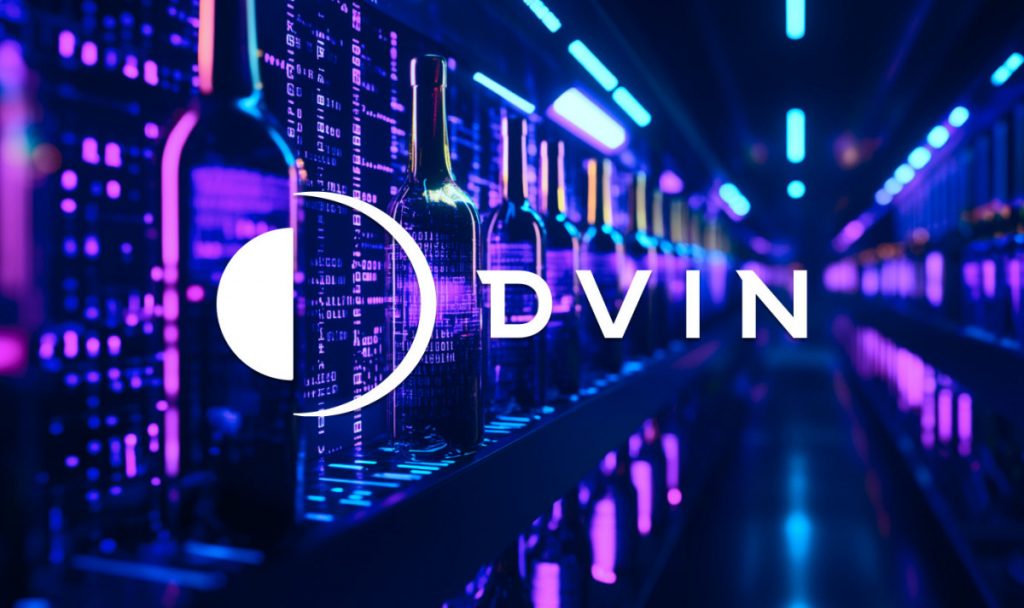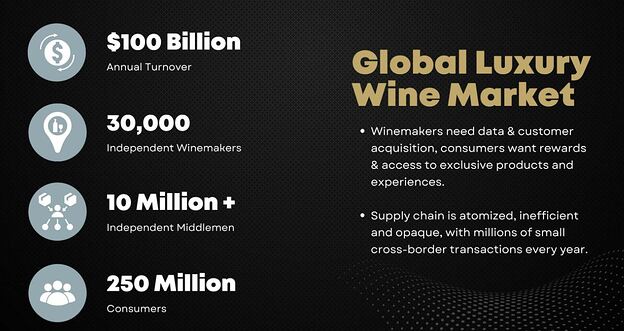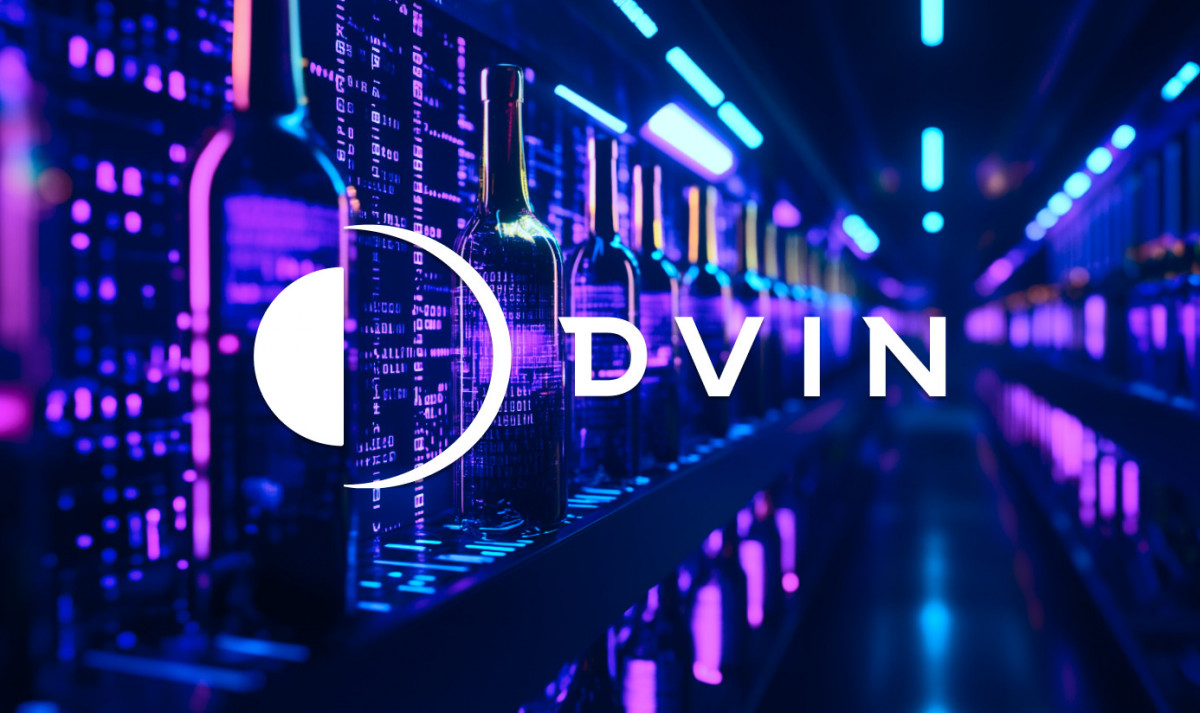
David Garrett
Posted: September 17, 2024 at 8:25 PM Updated: September 17, 2024 at 8:25 PM

Edit and fact check: September 17, 2024, 8:25 p.m.
Briefly
The fine wine industry, traditionally reliant on exclusivity and word-of-mouth, faces challenges in a decentralized, data-driven world, but decentralized technologies like blockchain offer solutions by increasing transparency, streamlining transactions, and improving communication across the supply chain.

How decentralized technology is advancing the wine industry
If you’re reading this, chances are you’ve never seen a fine wine ad before. You’ve probably never seen it on TV during a commercial break, flipped through a magazine, or seen it on your favorite social media platform. So how do fine wine producers find new customers if they don’t use traditional advertising?
This is a result of the fact that the fine wine industry has historically relied on exclusivity, word of mouth, and reputation. But this strategy is increasingly challenged in a data-driven world.
Beyond marketing limitations, the industry faces broader systemic problems caused by fragmentation. From production to distribution, retail and consumption, the wine world is highly fragmented. This creates inefficiencies and leaves winemakers with little control over consumer data, operational visibility or supply chains.
Decentralized technologies, especially blockchain, offer a unique solution. They have the potential to provide transparency, streamline transactions, and create better communication across the wine ecosystem. By addressing issues of authenticity, provenance, and financial transactions, decentralized technologies will revolutionize the fine wine industry.

The disconnect between winemakers and consumers
When a bottle of good wine is corked, it was probably made by someone tens of thousands of miles away, a decade ago. The disconnect between production and consumption is unique to wine and presents significant challenges for winemakers. Unlike most consumer products, where feedback is immediate, wine is often aged for years before it is enjoyed.
Consumers wear T-shirts the day they buy them, drive new cars off the lot the same day, and eat avocados in a few days. But wine? It’s likely to sit in your cellar for years before the cork pops.
This delay makes it incredibly difficult for winemakers to collect real-time data on the performance of their products. They rely on fragmented information from distributors and retailers, and often have no idea who their consumers are, what they think about wine, or how their preferences are changing. By the time the consumer finally opens the bottle, the market may have already changed, but the winemaker has no way of knowing.
Other industries don’t face this challenge. A distillery can access depletion reports that show exactly how much of its product was sold at a particular retailer anywhere in the world the day before. This allows them to fine-tune their marketing strategies, understand consumer demographics, and optimize their supply chain. Winemakers, on the other hand, often operate blindly when it comes to understanding their customers.
Fighting Counterfeiting and Ensuring Authenticity
Counterfeiting is a serious problem in the global wine industry, especially when it comes to rare and collectible wines that can sell for thousands of dollars a bottle. Fraudulent bottles and altered labels often fool experienced collectors and even auction houses, resulting in a lack of trust and damage to the industry’s reputation.
From the vineyard to your glass, the authenticity of a bottle of wine can be tracked via blockchain. Blockchain creates a digital record that tracks every movement. So harvesting, bottling, and shopping can all be recorded and accounted for, and the record of the wine’s journey can never be tampered with. Consumers can enjoy the convenience of scanning the wine label to verify that the bottle is authentic, reinforcing the legitimacy of the product.
Blockchain technology creates a valuable layer of trust for high-end collectors and investors by authenticating authenticity. Blockchain combats fraud in a fragile market.
In markets where fraud is rampant, such as China, blockchain technology can be used to verify provenance, allowing producers to ensure that only authentic products reach consumers, protecting both the integrity of the brand and the wine market.
From Vino to dVIN
A constant challenge in the wine industry is tracking bottles after they leave the vineyard. Lack of transparency for a delicate product that is prone to damage during transport.
Wine can be accounted for throughout its distribution process through decentralized technology, as it allows for traceability and transparency. The data collected can help winemakers address potential supply chain issues, make informed decisions about pricing and distribution, and build stronger relationships with consumers.
By using blockchain technology to track every bottle throughout the distribution process, winemakers can track insightful data, such as temperature during shipping.
Digital records allow us to collect data at every stage, including temperature during delivery, storage period, and condition during store display.
This level of transparency gives winemakers and consumers confidence that their wine has been handled correctly and that quality has been maintained. Problems such as temperature spikes during transport can be pinpointed at exactly where in the chain they occur, making it easier to resolve disputes or prevent future problems.
Distributors and retailers benefit from a clear distribution record of wine that appeals to premium-paying collectors. Blockchain-based provenance provides not only authenticity but also peace of mind that the wine has been treated with care.
Smart Contracts and Digital Currencies
In addition to supply chain tracking, the wine industry can be transformed by decentralized financial transactions. Retailers, brokers, and small winemakers make millions of dollars in low-dollar international transactions in the global wine market. However, these transactions are often plagued by counterparty risk, high bank fees, foreign exchange (f/x) slippage, and international settlement delays.
Given the number of small, independent actors involved, these inefficiencies pose a significant financial burden on the industry.
A potential solution lies in the combination of smart contracts and digital currencies. Smart contracts are self-executing contracts encoded with specific terms that can automate payment processes based on predefined conditions, such as delivery confirmation. This eliminates the need for intermediaries such as banks, thus reducing costs and minimizing risk or fraud.
Digital currencies can also eliminate the problems associated with currency conversion and international payments. Digital currency transfers are instantaneous, resulting in faster settlement times and lower fees. This is beneficial for small winemakers who sell to international markets but lack the financial infrastructure to manage complex global transactions.
Decentralized finance could revolutionize the global wine industry by reducing transaction times, reducing costs, and minimizing risk. This would allow small winemakers to enter new markets and compete more effectively with big brands.
The Future of Luxury Wine
It’s time for a shake-up in the wine industry. While respecting centuries-old traditions, it’s time to embrace new-age technologies to improve supply chain transparency, prevent counterfeit sales, and streamline international trade. This groundbreaking shift toward decentralized technology will give winemakers access to the data they need to make smarter, more informed business decisions.
They will be able to ensure product authenticity and quality, increase consumer trust, and streamline operations from vineyard to table. At the same time, consumers will benefit from greater transparency and confidence in the products they are purchasing.
Distributed technology is a key element in transforming the wine industry away from traditional distribution and toward preserving the craftsmanship and heritage of fine wines while meeting the demands of the modern market. Data-rich industries facilitate effective decision-making. Introducing distributed technology to the wine industry can usher in a new world of transparency, trust, and efficiency.
disclaimer
In accordance with the Trust Project guidelines, the information provided on this page is not intended to be and should not be construed as legal, tax, investment, financial or any other form of advice. It is important that you only invest what you can afford to lose and seek independent financial advice if in doubt. For more information, we recommend that you refer to the terms and conditions and help and support pages provided by the publisher or advertiser. MetaversePost strives to provide accurate and unbiased reporting, but market conditions may change without prior notice.
About the Author
David is a seasoned entrepreneur with over 25 years of experience in technology and wine business globally. He was CEO and co-founder of IntraACTIVE in the 1990s, where the company created the first intranet for the US Navy. He then co-founded the innovative Sant Marcell Vineyard & Winery in Spain and Vines of Mendoza Wine Resort in Argentina. He spent several years developing the Entaste iPad wine list platform in Hong Kong, and sits on the boards and advises wine-related companies on three continents, from producers to retailers to wine tourism.
More Articles


David is a seasoned entrepreneur with over 25 years of experience in technology and wine business globally. He was CEO and co-founder of IntraACTIVE in the 1990s, where the company created the first intranet for the US Navy. He then co-founded the innovative Sant Marcell Vineyard & Winery in Spain and Vines of Mendoza Wine Resort in Argentina. He spent several years developing the Entaste iPad wine list platform in Hong Kong, and sits on the boards and advises wine-related companies on three continents, from producers to retailers to wine tourism.

